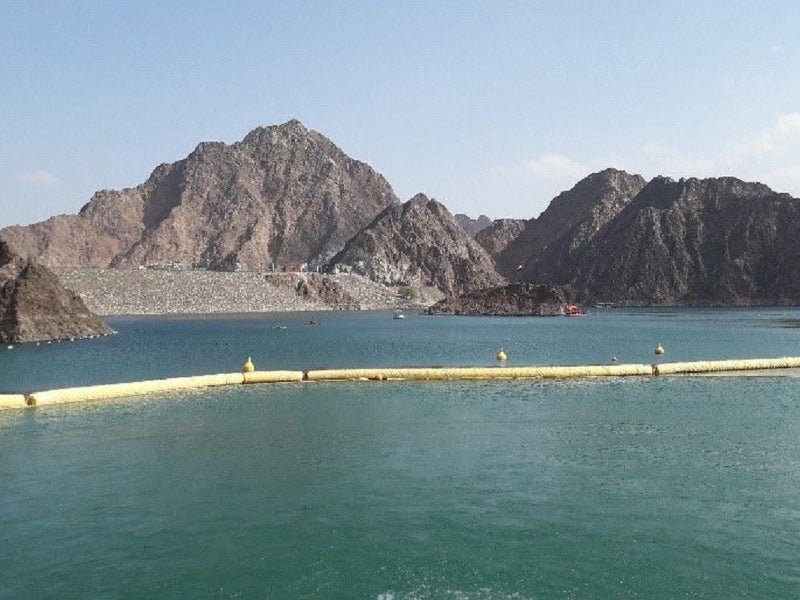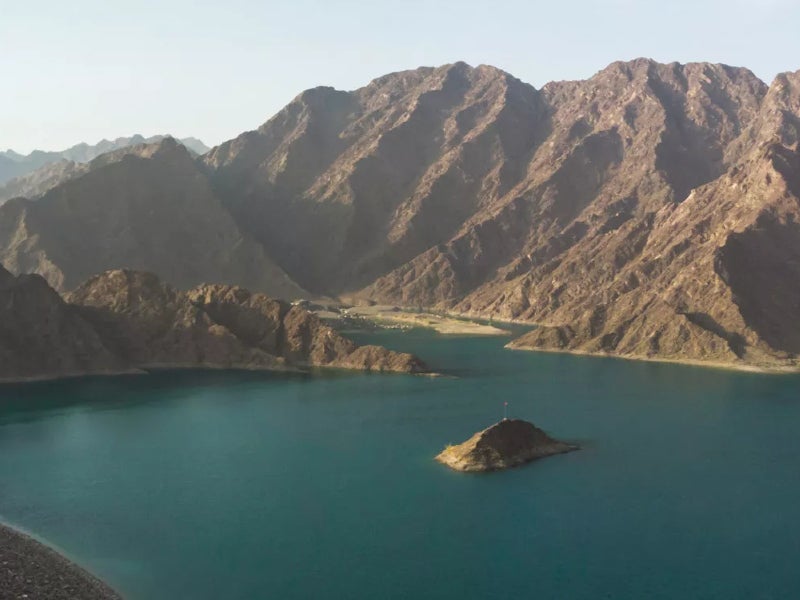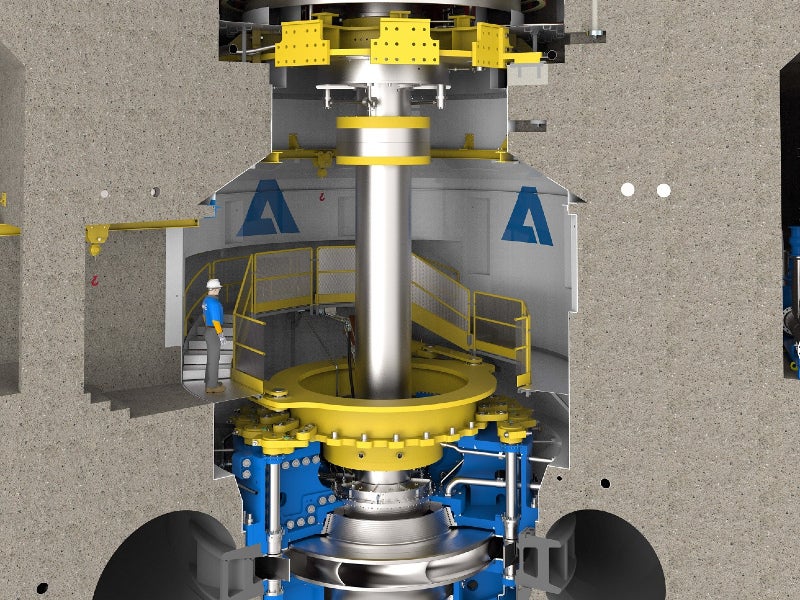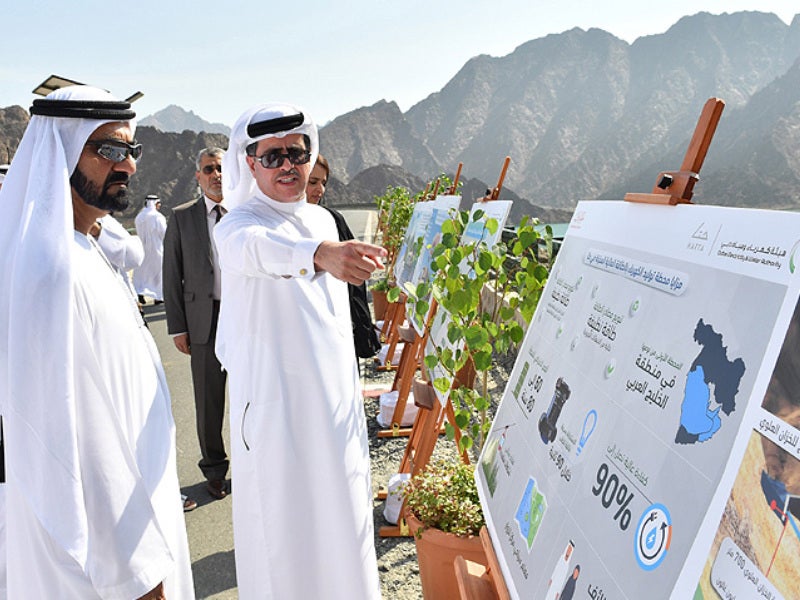The 250MW Hatta pumped storage hydropower plant is being developed near Dubai, United Arab Emirates (UAE), by Dubai Electricity and Water Authority (DEWA). The total investment in the project is estimated to be roughly AED1.42bn ($386.52m).
Scheduled for commissioning in early 2024, it will be the first hydropower plant of its kind in the Arabian Peninsula.
The pumped storage facility will contribute to the Dubai Clean Energy Strategy 2050, which aims to increase the share of renewables in the city’s total power generation capacity to 75% by 2050.
Furthermore, the plant is expected to reduce the volatility associated with renewables such as photovoltaics and wind power.
Location and reservoir details
The Hatta pumped storage power project is located in Hatta, near the Hajar Mountains, about 140km south-east of Dubai.
The project will use the existing Hatta dam as the lower reservoir, while the upper reservoir will be created by constructing two roller-compacted concrete (RCC) dams, measuring 35m and 70m high.
The lower reservoir has a storage capacity of up to 1,716 million gallons. The upper reservoir, located 150m above the lower reservoir level, will have a storage capacity of 880 million gallons.
Hatta pumped hydropower plant details
Hatta pumped storage power plant will comprise a shaft-type powerhouse equipped with two pump-turbine and motor-generator units of 125MW capacity each.
The plant will use solar power to pump water from the lower reservoir to the upper reservoir for storage during off-peak periods. The stored water will be released to drive turbines for power generation during peak hours.
The turbine units will be equipped with double-fed asynchronous motor-generators to overcome the head variation of 175m and 125m during the charge-discharge cycle.
The project is expected to have a generation cycle of six hours in turbine mode and storage cycle of 7.4 hours in pumping mode. The overall storage capacity of the project is estimated at 1.5GWh.
Construction details
A 1.3km-long and 7m-diameter pressure tunnel will be constructed to connect the two reservoirs. The tunnel will feed water to the powerhouse at a rate of 200m³/s, enabling the turbines to achieve an efficiency of 78.9% within 90 seconds.
Two road tunnels, which will be 470m and 440m long, will also be built using blast excavation.
Furthermore, reinforced outflow and intake structures along with ancillary buildings will be built as part of the project.
Contractors involved in Hatta pumped hydropower plant
French power company EDF received a contract worth AED58m ($15.78m) to provide consultancy services for the project in June 2017.
The contractual scope included design, geological, hydro-geological, geotechnical, environmental and deep excavation studies. The company was also consulted for deep-water tunnel designs, dam and hydroelectric power station, material supply tender, supervision of construction work, site installation, testing, and commissioning.
A consortium led by Austrian construction company Strabag received the engineering, procurement and construction (EPC) contract worth AED1.43bn ($389.21m) for the pumped storage power project in July 2019. The consortium also includes Andritz Hydro and Özkar Inşaat.
Strabag and Özkar Inşaat are responsible for the civil engineering works. Andritz Hydro will provide the electro- and hydro-mechanical equipment for the project, including the supply, installation and commissioning of two 125MW Francis-type pump turbines with double-fed generators and auxiliary systems.
Its scope of work also covers the supply of the main power transformers, gas-insulated substation (GIS) switchyard, and high-voltage cables to connect the power plant with the national grid.
In addition, the company will provide and install all gates and trash racks, as well as 320m of penstock steel lining and main inlet valves for the turbines.
Strabag and Özkar appointed Artelia, a consultancy, engineering and project management firm based in France, as the consultant engineer. The contractual scope includes execution studies, coordination of building information modelling (BIM), and providing technical assistance during the project execution.
Hitachi ABB Power Grids was selected to supply technology for grid connection and stabilisation in May 2021. It will deliver two alternating current (AC) excitation systems, based on power electronic converters, to enable the operation of the turbine units at variable speeds.
An integrated solution will also be supplied to connect the plant with DEWA’s 132kV network.
Dextra Group and Pretec Group were engaged to supply bolts for the project, while Zetas Zemin Teknolojisi was contracted for secant piles and grouting.







